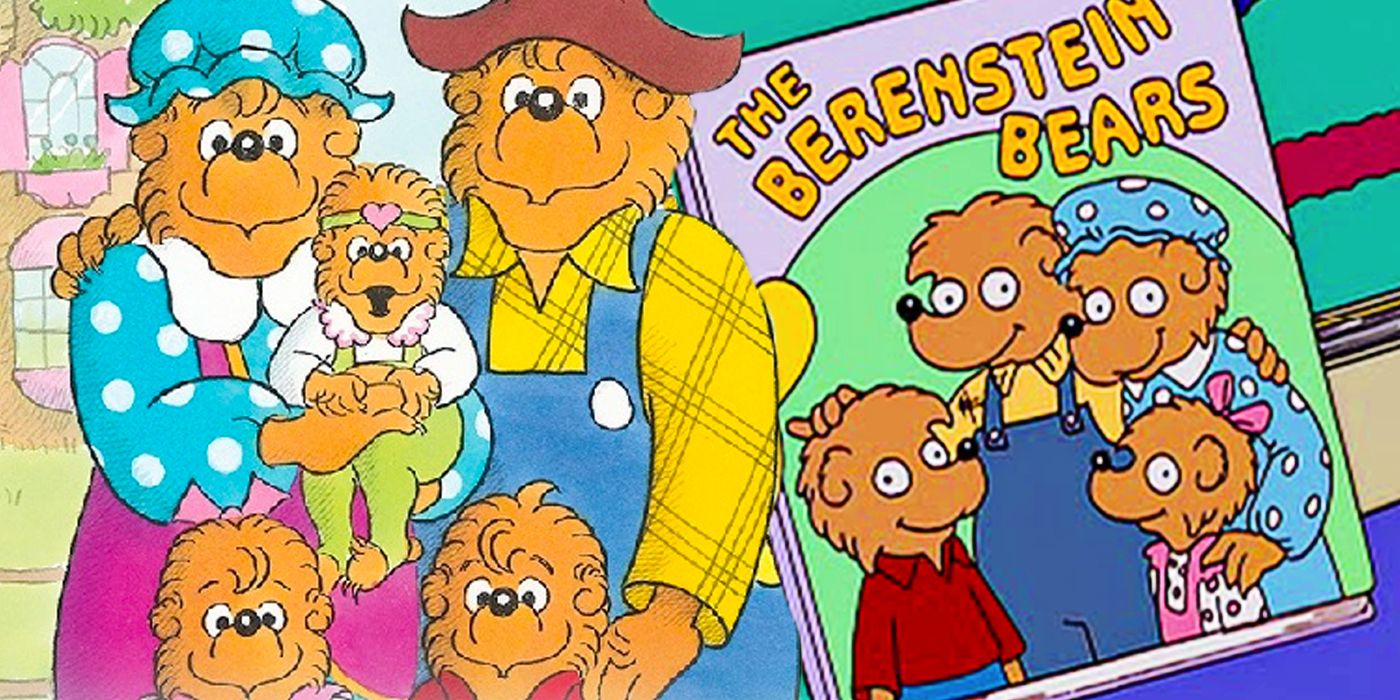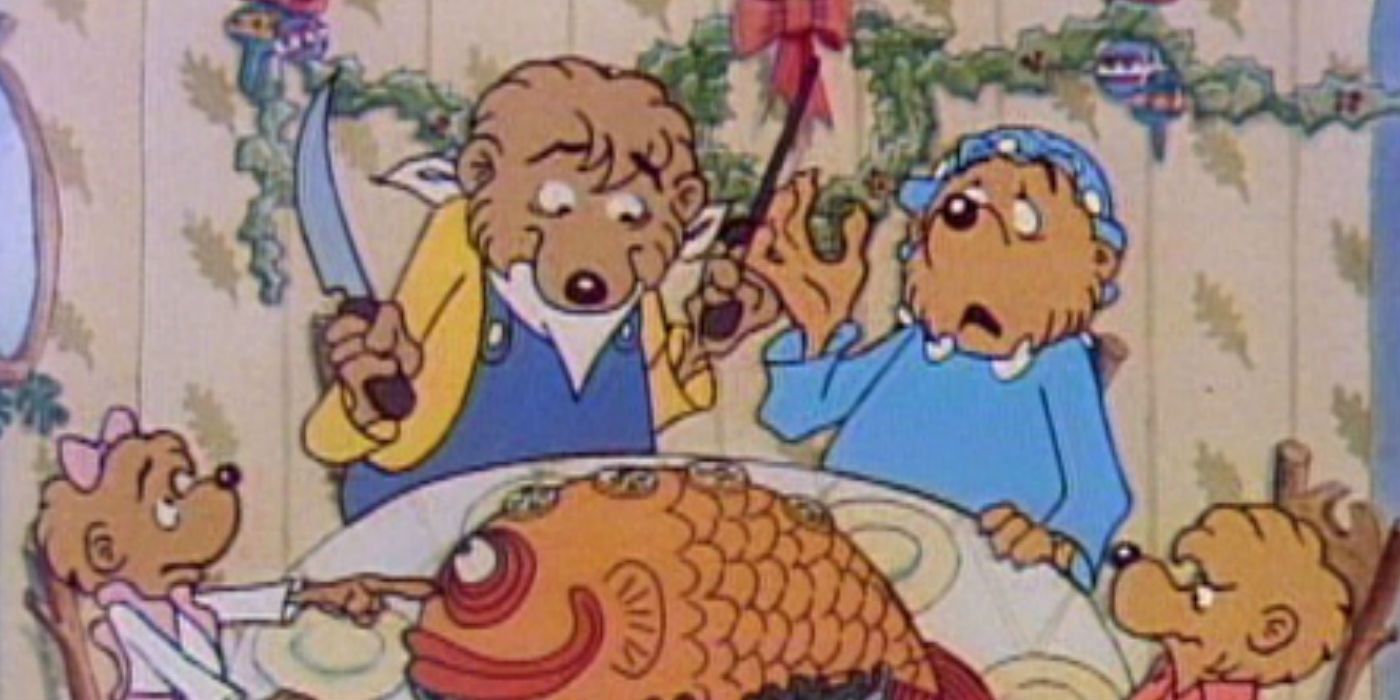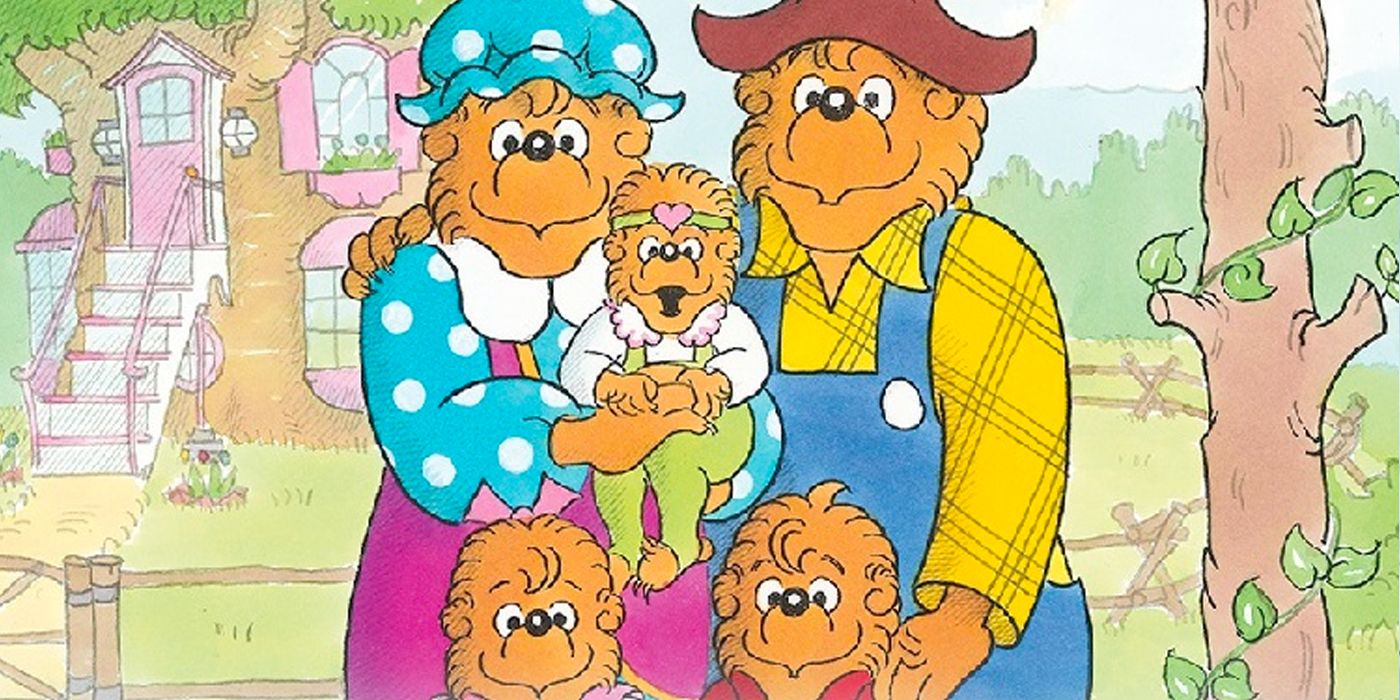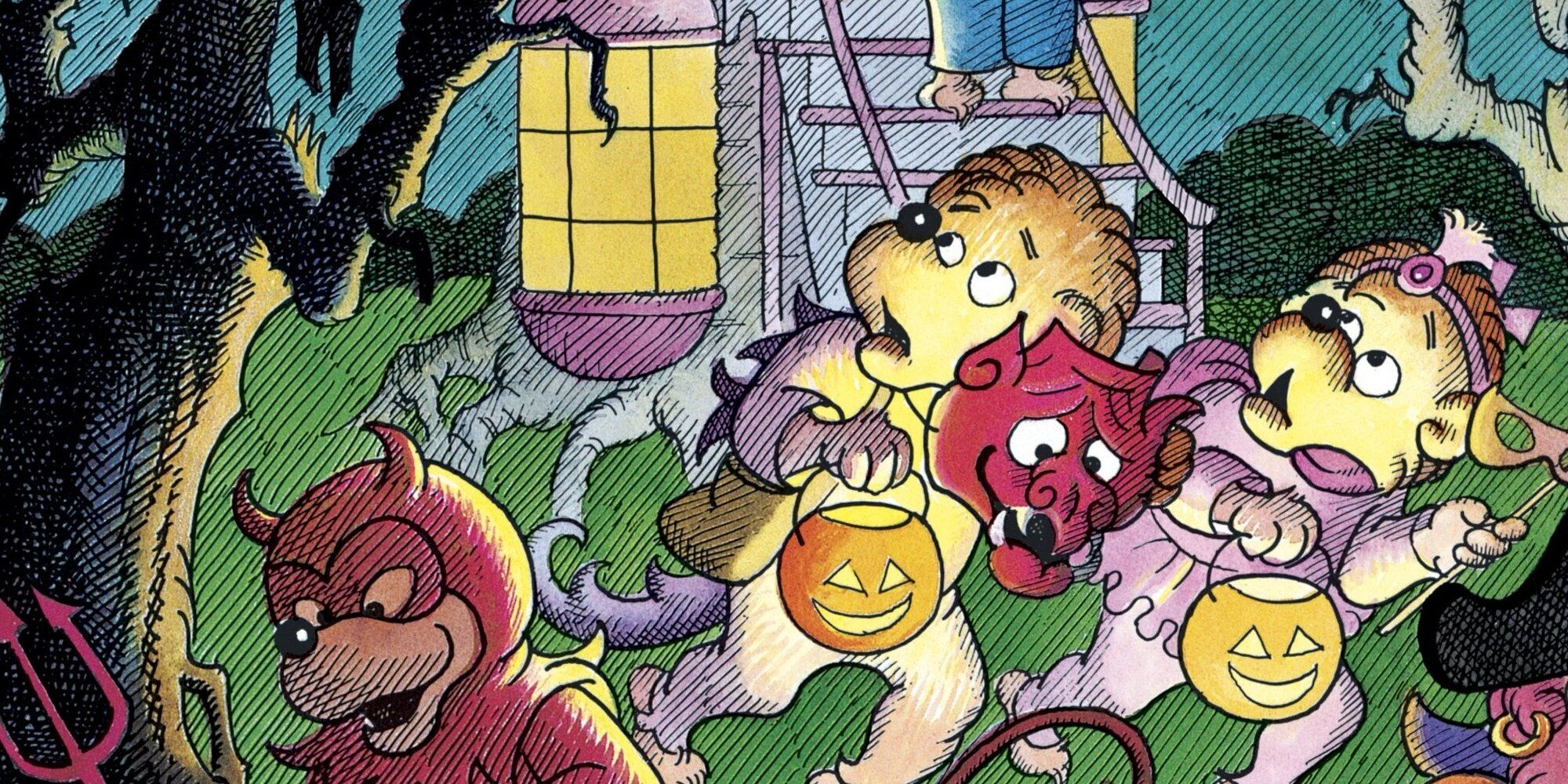Summary
- The misconception that The Berenstain Bears is called The Berenstein Bears has caused controversy and debates online and offline.
- The confusion surrounding the name of the children's series is due to a misspelling that originated from a teacher instructing Stan Berenstain to change the spelling of his name.
- The Berenstein or Berenstain debate is not evidence of the Mandela Effect or parallel universes, but simply a result of misinterpretation and repeated misspelling over the years.
It is a common mistake to think that the children’s book series The Berenstain Bears was called The Berenstein Bears. This has created a surprising amount of controversy over the years. It's often used to demonstrate the Mandela Effect — a phenomenon in which large groups of the population misremember a historical fact, prompting theories about alternate realities. The misconceptions about the name of The Berenstain Bears have become widespread, caused heated debates both on and offline, and been referenced multiple times in popular media.
It's even been called the Berenstain Bears Effect or Berenstein Bears Effect. This Berenstein/Berenstain Mandela Effect phenomenon is so intense that full-blown debates have happened online, and some have even grown heated. So, is it Berenstain or Berenstein? The confusion surrounding the Berenstain/Barenstein debate and the name of the popular children’s series has spawned a range of wild theories, but there is a genuine explanation — and it's not the Mandela Effect.
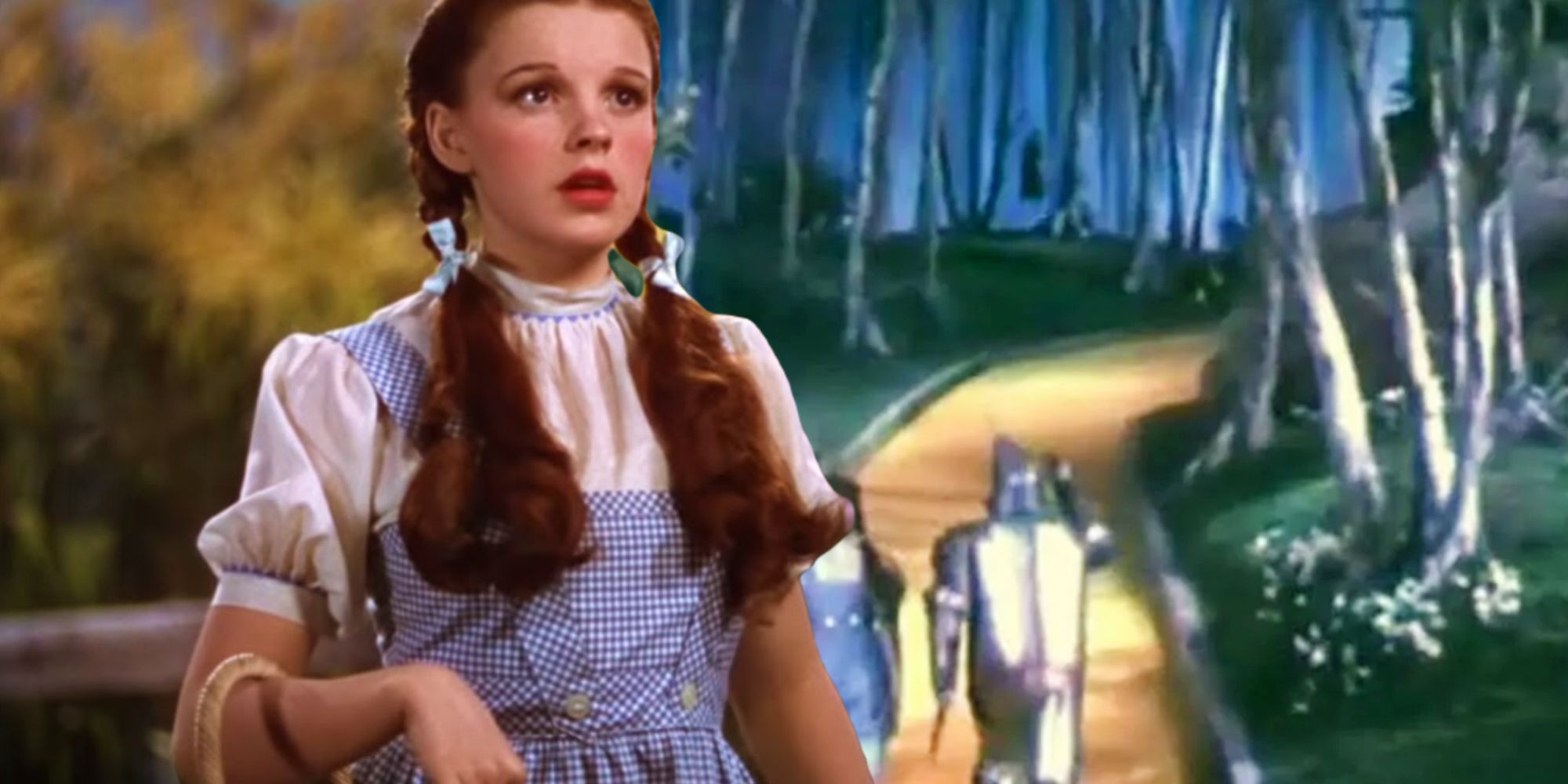
Wizard of Oz’s Secret Dead Munchkin Myth Explained
A sinister Wizard of Oz urban legend claims a hanging munchkin can be seen, with the body belonging to a real actor on set. Here's the myth debunked.Berenstain Or Berentstein Debate Isn't A Debate — They Are Called The Berenstain Bears
They've Never Been Called The Berenstein Bears
The Berenstain Bears franchise was first established when Stan and Jan Berenstain published The Big Honey Hunt in 1962. The husband-and-wife team continued to write and illustrate the book series for several decades. Since their deaths, their son Mike Berenstain has taken over the production of new books. There are now hundreds of The Berenstain Bears books that teach lessons to young children and the books have been adapted into two different TV series, first in 1985, then again in 2003. While the beloved children's book series has always been called The Berenstain Bears, some people will still insist that it is spelled “Berenstein.”
Mike Berenstain explained in an interview (via National Post) that the misspelling of his father’s name had plagued Stan since elementary school when a teacher informed him his name was spelled wrong and insisted on changing it to “Berenstein.” As the “-stein” suffix on names is more common, many people have simply assumed that is what the name should be. The confusion has been added to over the years as knock-off versions of some of the books have used the “Berenstein” spelling of the name, but it was definitely always The Berenstain Bears and the series draws its name and spelling directly from the authors who wrote it.
Why Some People Think They're Called The Berenstein Bears
A Collective False Memory Surrounds The Berenstain Bears
The Mandela Effect is intriguing, but there is more to explain why so many people get the spelling of The Berenstain Bears’ name wrong. The two official TV adaptation series used a pronunciation of “Berenstain” that could easily be misinterpreted to be “Berenstein.” The people who grew up with the cartoons as children might have repeatedly heard “Berenstein” and never been corrected, so they still call The Berenstain Bears by the wrong name. This is the simple reason for the Berenstein or Berenstain debate.
The controversy surrounding The Berenstain Bears’ name has been regularly cited as an example of the “Mandela Effect,” named after the idea that many people specifically remember South African President Nelson Mandela passing away in prison, while the public record has him surviving for many years longer. While some people suggest supernatural forces or conspiracy theories are at work, the Mandela Effect can be largely attributed to a series of social circumstances leading to the creation of a false memory. It also often occurs in combination with false news reports or misleading/fake photos and images.
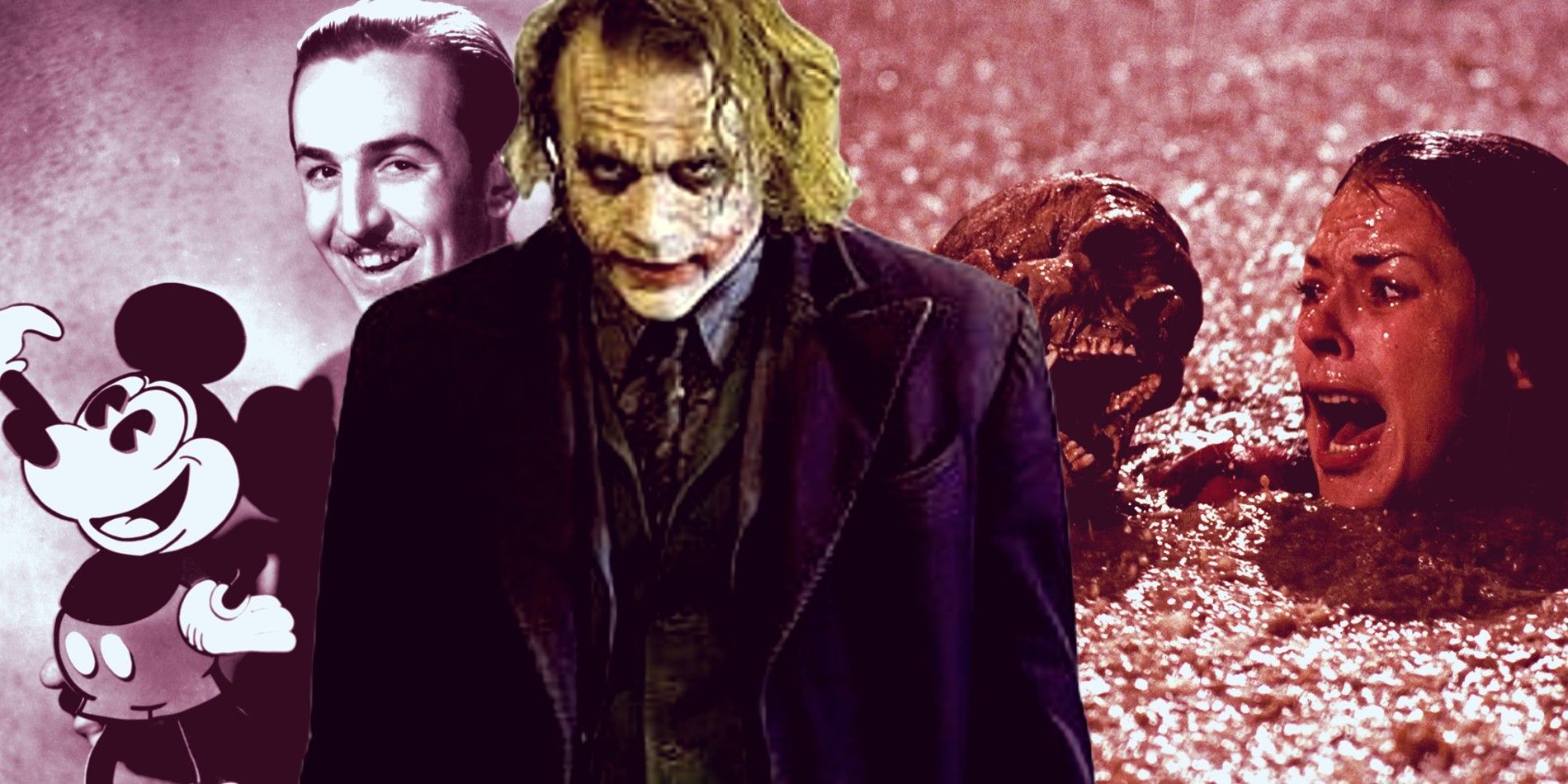
10 Wild Movie Urban Legends & Myths That Are Absolutely False
Making movies takes a lot of skill and Hollywood magic, so while it's not surprising their production generates urban legends, these ones aren't true.The Berenstain Bears Confusion Has Led To A Bizarre Conspiracy
Does The Berenstain Bears Mandela Effect Prove Parallel Universes Exist?
Perhaps the most bizarre result of the Berenstein or Berenstain debacle is the theory regarding the existence of a government conspiracy to convince everyone that Berenstain is the correct spelling. According to this theory, The Berenstein Bears, which is supposedly the real name, is being erased from history to cover-up massive experiments that have changed small things in the past. As for how time or reality can be altered in such a way, that remains unclear.
However, this is directly related to the larger theory about the Mandela Effect — that the Berenstein or Berenstain debate and other examples of it are proof of parallel universes. This is a contemporary interpretation of the Many-Worlds Interpretation (MWI) of Quantum Mechanics, based on the work of physicist Erwin Schrodinger. MWI solves the problem of measurement in quantum mechanics by theorizing that there are not only various universes (via Stanford University), but that they exist parallel to our own in terms of both space and time. The Berenstein or Berenstain Bears theory purports that the small change is a symptom of our world branching out or merging with another.
Interestingly, as much as there's no way to prove this conspiracy theory surrounding The Berenstain Bears, there's really no way to completely disprove it, either. On one hand, it's very easy to misspell Berenstain into Berenstein, and the mistake repeated over the years — whether orally or in print — could have simply resulted in harmless mass misinformation. On the other hand, the possibility that it's actually evidence of parallel universes is a valid hypothesis, even if it is a little fantastical.
What Else Has The Mandela Effect “Changed” In Movies And TV
The Berenstain/Berenstein Confusion Doesn't Exist In A Vacuum
The popular belief that the correct spelling of the Bears' last name was “Berenstein,” not "Berenstain," is one of the most prevalent examples of the Mandela Effect at work in the movie world. Another example is the certainty many people share that a movie called Shazaam existed in the 1990s starring Sinbad as a genie, even though no such movie ever existed.
There are countless other cases, too, which largely surround the slight misquoting of iconic lines. For instance, Darth Vader never says "Luke, I am your father" in Star Wars: Episode V. Rather, he corrects Luke's claim that he killed his father by saying "No, I am your father." Another common Star Wars-related Mandela Effect is the notion that nobody seems to remember C-3PO's one silver leg.
Meanwhile, Brody's recognizable line from Jaws, "We're going to need a bigger boat" actually begins with "you're," as he's actually trying to insult Quint's little vessel. And, perhaps most shockingly, Dorothy doesn't say "I don't think we're in Kansas anymore" in The Wizard of Oz. The actual line is "I've a feeling we're not in Kansas anymore." Much like the above examples, it's likely that people will still be misspelling The Berenstain Bears for a long time.

